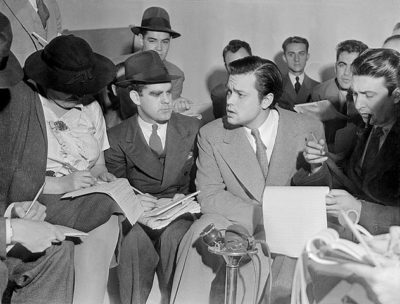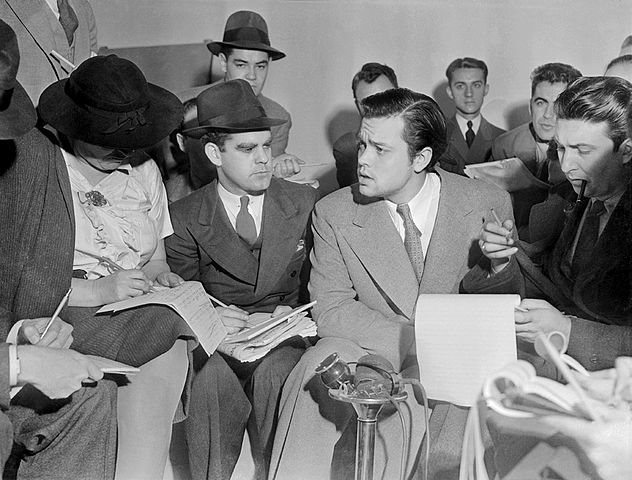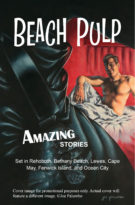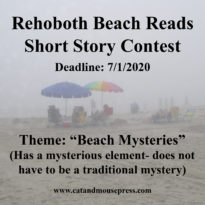Fact Checking for Fiction Writers
The Facts and Just the Facts—Even in Fiction
By Nancy Sakaduski

Many years ago, a friend told me that his father had been listening to the radio when the legendary Orson Wells dramatization of H.G. Wells’ War of the Worlds aired in 1938. The program began with music and then an actor’s voice broke in with this: “Ladies and gentlemen, we interrupt our program of dance music to bring you a special bulletin from the Intercontinental Radio News. At twenty minutes before eight, central time, Professor Farrell of the Mount Jennings Observatory, Chicago, Illinois, reports observing explosions of incandescent gas, occurring at regular intervals on the planet Mars.” The drama proceeded to describe a spacecraft landing and aliens emerging and attacking. The broadcast caused widespread panic when listeners thought they were hearing a report of an actual Martian invasion. I asked my friend what his father’s reaction had been to the infamous broadcast. He said his father had simply said “Mars isn’t visible this time of year” and turned off the radio.
Writers, that’s what happens when readers are immersed in your fictional world and come upon an incorrect detail—they turn off your story. Like a plastic soda bottle on the set of a historical drama, a glaring error breaks the magic in a way that’s hard to recover from. Whether it’s the mention of the face of Thomas Jefferson on a $20 bill (it’s Andrew Jackson), a description of Portland’s Space Needle (it’s in Seattle), or characters at a 1975 wedding dancing to “Celebration” (the song was released in 1980), seemingly insignificant details, if incorrect, become not just significant, but intrusive. Sure, not every reader will notice if you spell a street name incorrectly or have a Spanish character use a phrase from Latin America, but for those who do, you’ve ruined the story.
So, what’s a writer to do? Research. Check every detail, every unusual word, every actual place or thing, and every historical element. If your character is a carpenter, you better make sure he or she uses tools correctly and knows the right terms. If your scene takes place in Flagstaff, Arizona, in winter, you better know that it’s likely to be snowy. And if your story takes place in 1965, you shouldn’t have characters named Jayden and Savannah, as those names didn’t become popular until much later. Does your story contain medical scenes, technical procedures, professional settings, or characters with specialized skills? Make it authentic by getting the details right.
Common Pitfalls
- Going with your gut (relying on your own knowledge). People who get hit on the head get amnesia, right? Einstein flunked math, didn’t he? Sugar makes kids hyperactive, correct? Bats are blind? The Great Wall of China is the only manmade object visible from space? King Arthur was real? I could go on and on. Many things people think are true are not.
- Assuming that because your story is fiction, it doesn’t need fact checking. Readers suspend belief when they enter your fictional world. Your characters and actions are presented against a backdrop of reality, even if it’s not the here and now. That reality must be believable and consistent.
- Overcompensating with an info dump. You’ve done your research and now know 437 ways to cook a chicken, so you decide to have your chef character describe them to her date. Not a good idea. Don’t feel you must share everything you’ve learned. As in lingerie, sometimes a peek is more enticing than the full monty.
- Relying on the wrong sources. Wikipedia is not an authoritative source (it is notoriously inaccurate). Your brother-in-law is not an authoritative source (despite what he tells you, he’s not an expert on everything.) Googling and taking whatever comes up first is not an authoritative source (be particularly wary of online “information” provided by companies, organizations, and individuals with an ax to grind or something to gain). Here are some legitimate sources: university or government websites, up-to-date academic books and references, peer-reviewed journals, articles from major newspapers, and original sources (people with expert knowledge or relevant experience).
- Assuming the editor or publisher will do the fact checking. Editors will pick up obvious errors, but will probably not check every fact unless specifically hired to do so. Publishers may (or may not) employ a fact checker to review your work. Ultimately, it’s your name in print. If you don’t want to be embarrassed, check the facts yourself.
- Being lazy and leaving out details to avoid doing research. Really? Produce a threadbare, unimaginative story because it’s easier? No! Details provide a richer experience for the reader.
Fact Checking
Fact checking is an essential part of writing and a writer’s responsibility. Make it a part of your writing process.
By the way, did you spot the factual error in this article? Although there were some isolated reports of calls to emergency services and other incidents, there was no widespread panic following the War of the Worlds broadcast, although the myth was great advertising for the show and has continued to be a common misconception.
 Nancy (Day) Sakaduski is an award-winning writer and editor who owns Cat & Mouse Press (www.catandmousepress.com) and runs the Rehoboth Beach Short Story Contest. She helps writers perfect their short stories and prepare them for publication, and curates a free weekly online newspaper, Writing is a Shore Thing (www.writingisashorething.com). Nancy is the author of 24 books, including How to Write Winning Short Stories. She founded Cat & Mouse Press to create “playful” books with a connection to the Delmarva region and provide a way for new and emerging writers to have their work published.
Nancy (Day) Sakaduski is an award-winning writer and editor who owns Cat & Mouse Press (www.catandmousepress.com) and runs the Rehoboth Beach Short Story Contest. She helps writers perfect their short stories and prepare them for publication, and curates a free weekly online newspaper, Writing is a Shore Thing (www.writingisashorething.com). Nancy is the author of 24 books, including How to Write Winning Short Stories. She founded Cat & Mouse Press to create “playful” books with a connection to the Delmarva region and provide a way for new and emerging writers to have their work published.









